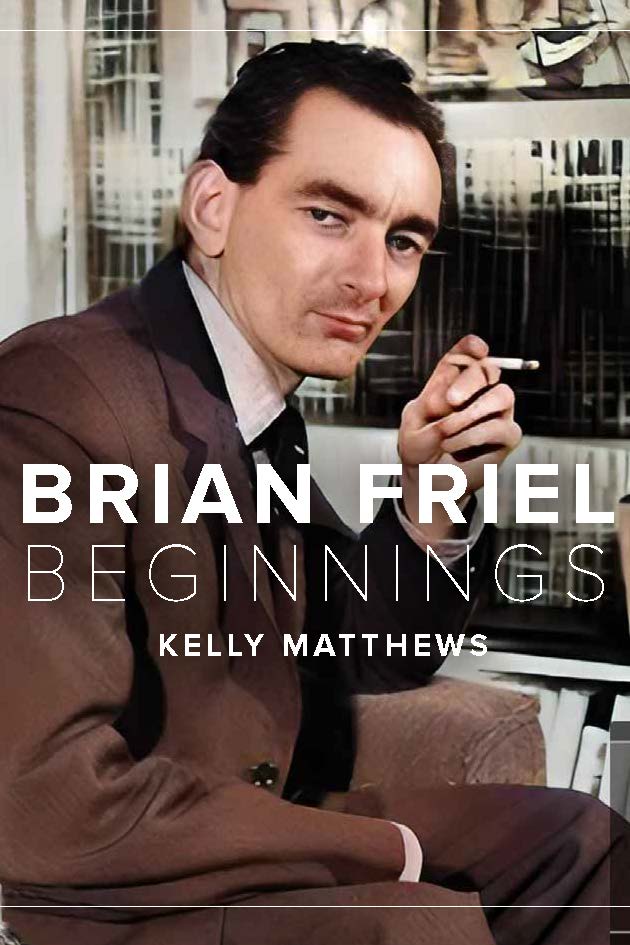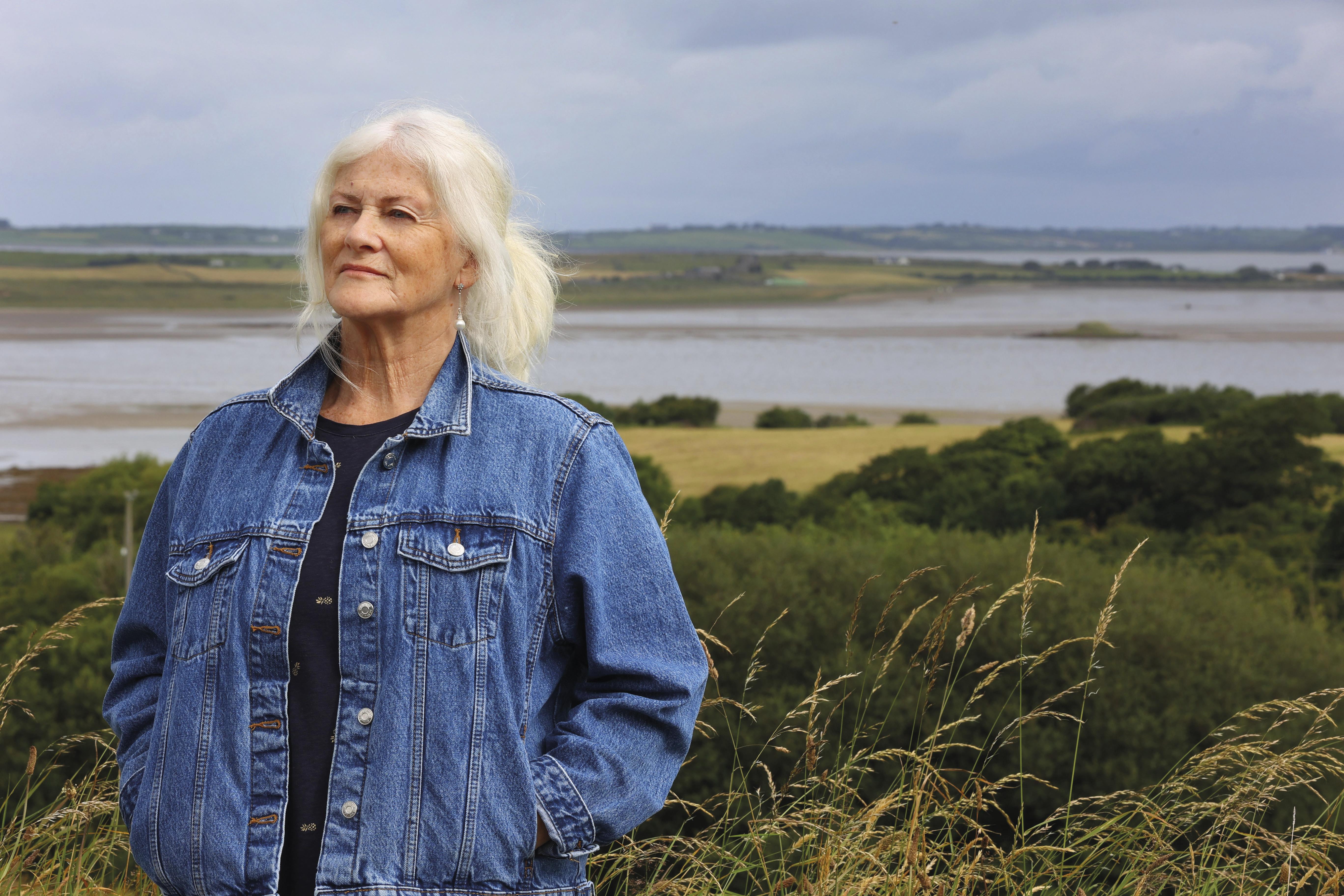This year the Echo will mark 20 years since the debut of the author questionnaire Page Turner. We note here the writers and books featured in 2024 and remember a few of their answers. (Click on the authors' names for their contributions to Page Turner.)
What is your favorite spot in Ireland?”
I grew up in Monaghan and Cavan and I love the landscape in that part of the country. It may not have the drama of the Kerry mountains or the wildness of Connemara, but its glacier-made drumlins mean that the landscape is constantly changing as you move through it. It is said that there are 365 lakes in Cavan – one for every day of the year.
— Niamh Howlin, "Barristers in Ireland: An Evolving Profession since 1921.”
What advice do you have for aspiring writers?
Study the craft. Let your first draft be messy—and write the entire first draft before re-reading and rewriting. Understand that writing is rewriting. Don’t let perfectionism get in your way.”
— Carlene O’Connor, "Some Of Us Are Looking."
What book changed your life?
The two letters of St Patrick that he wrote in the 5th century. They are a revelation about a man so much more than the modern image of Patrick. They are about a man who had terrible struggles, but was determined to do good in life.
Name a book that you were pleasantly surprised by.
“The Screwtape Letters” by CS Lewis. A funny and terrifyingly insightful book about a senior demon writing his nephew giving advice on how to lead humans astray. It's a hard book to forget.
— Philip Freeman, "Two Lives of Saint Brigid.”
What is your writing routine? Are there ideal conditions?
Wish I had a routine. I tend to write only on deadline. Ideally, I would write every afternoon from my cabana on a tropical island with a drink nearby.
— Mike Houlihan, “Chicago Irish Mythology.”
Name three books that are memorable in terms of your reading pleasure.
I’ll select one: Nicola Gordon Bowe’s “Life and Work of Harry Clarke” is a book I found myself constantly referring back to when writing my book on his contemporary, Michael Healy. Her prose is excellent and reminded me of her stimulating lectures I had the pleasure of attending when I was an undergraduate at art school.
What advice do you have for aspiring writers?
Be disciplined and determined!
— David Caron, “Michael Healy, 1873-1941: An Túr Gloine’s Stained Glass Pioneer”
What book changed your life?
Edna O’Brien’s “The Country Girls.” It offered such vivid insight into the rural Ireland my mother’s generation was raised in – a world close in many ways to the one I grew up in. It made me appreciate all the more what women like my mother had to overcome in building a life for themselves and making a home for their children. I never stop appreciating the chances I have been given that my mother and women like her were denied – women of fierce intelligence and fortitude.
— Ellen McWilliams, “Resting Places: On Wounds, War and the Irish Revolution.”
Name a book that you were pleasantly surprised by.
“Slow Horses” and all the Slough House books by Mick Herron. I had seen the TV show and was curious about the books, little realizing that the TV series was so good precisely because it stuck so close to the wonderful tone and execution of the books.
— Kevin Holohan, "So you wanna run a country?"
What is your writing routine? Are there ideal conditions?
I like to write early in the morning and late at night, when all is peaceful and I can hear the sea whispering or roaring in dawn light or moonlight, in storms or under stars. RTE Radio stations are a great musical companion in the little hours.
— Maura Gilligan, “The Tide is Coming.”
Is there a book you wish you had written?
The first that comes to mind is “Transatlantic” by Colum McCann – his writing spans so many perspectives and time periods with such grace, it’s breathtaking.
What book changed your life?
The first book that changed my life was “The Grapes of Wrath” by John Steinbeck. I read it multiple times as a teenager because I was so engaged by the level of empathy that Steinbeck showed for each character despite their difficult circumstances. It’s a novel about migration and economic inequality, and it set my sights toward public service and teaching as I grew older.
— Kelly Matthews, “Brian Friel: Beginnings”

If you could meet one author, living or dead, who would it be?
William Blake: not for nothing is his face tattooed on my right shoulder! And it might interest Irish Echo readers to know that William Butler Yeats admired Blake so much, he valiantly—but unsuccessfully—tried to claim him for the Irish.
— Rosie Schaap, “The Slow Road North: How I Found Peace in an Improbable Country.”
What book are you currently reading?
Steve Inskeep’s “Differ We Must: How Lincoln Succeeded in a Divided America” —a gift from a lifelong friend, on a topic with obvious contemporary relevance.
Name a book that you were pleasantly surprised by.
Edwin O’Connor’s “The Last Hurrah.” You can read all the academic tomes you want about the political machines that Irish Americans dominated for decades, but this frequently hilarious novel gives a better sense than any of them why they held the allegiance of constituents for so long.
— Michael Tubridy (with Robert Polner), “An Irish Passion for Justice: The Life of Rebel New York Attorney Paul O’Dwyer.”
Is there a book you wish you had written?
“Politics and Irish life 1913-1921: provincial experiences and war and revolution,” by David Fitzpatrick, for the way it has shaped pretty much anything important or substantive written about the Irish Revolution since it was published.
— Brian Hughes, “Dublin: The Irish Revolution, 1912-1923.”
Name a book that you were pleasantly surprised by.
I read about Kimberly Brubaker Bradley’s “The War that Saved My Life” maybe a year ago and ordered it via interlibrary loan for my daughter (and also the sequel, “The War I Finally Won”). Eve [who is 11] reads a lot on her own now, but I read these books aloud to her (twice now), and we loved them. She is growing into a history person, too, and so really enjoyed the World War II component and especially from a non-American perspective. The relationships in the book and the discussions of the main character’s inner life and her emotional development over time are really beautiful and astute and have given us so much to discuss about the ways people imagine their relationships to be versus how they are and what it means to be vulnerable and why that can be so hard. And the books are funny, too!
— Karen M. Dunak, “Our Jackie: Public Claims on a Private Life.”








